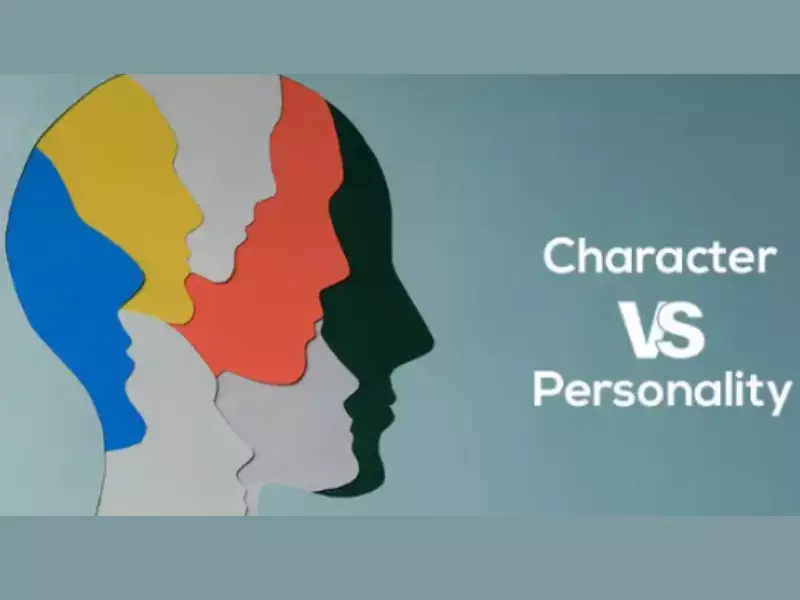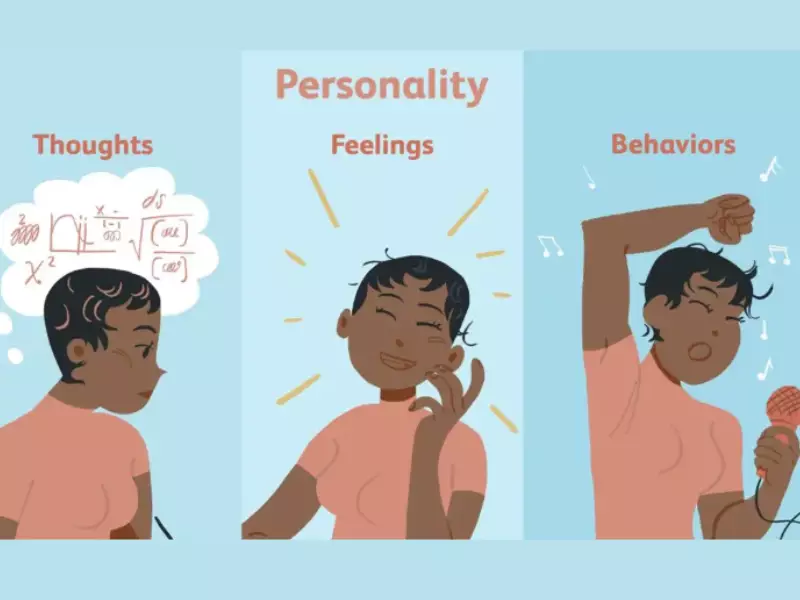The distinction between character and personality is a nuanced yet crucial aspect of human psychology that often goes unnoticed. While commonly used interchangeably in casual conversations, these terms hold distinct meanings and implications for understanding human behavior and interpersonal dynamics. This differentiation not only enriches our comprehension of social interactions but also guides our self-awareness and personal development efforts.
Character refers to the set of moral and ethical qualities and beliefs that influence an individual’s choices and behaviors, acting as a compass for right and wrong. Personality, on the other hand, is the combination of emotional, attitudinal, and behavioral response patterns of an individual, visible to others through interactions. Essentially, character is about who we are at our core, while personality is how we express ourselves to the world.
Understanding the difference between these two concepts is crucial for personal growth and developing meaningful relationships. Character encompasses the deep-rooted values and principles that guide an individual’s actions, often shaped by upbringing and life experiences. Personality, shaped by both innate traits and environmental factors, colors the way these values are presented to others. This distinction plays a significant role in how we perceive ourselves and others, impacting our interactions in both personal and professional settings.

Difference Between Character and Personality
Definitions
Character Overview
Character represents the ethical and moral qualities that define an individual. It’s the backbone of our decisions and actions, deeply rooted in values and principles. Key features of character include:
- Consistency in moral decision-making
- Integrity, showing honesty and coherence between beliefs and actions
- Courage, the ability to stand up for what is right
- Compassion, showing empathy and concern for others
Character is the essence of who we are, beyond the surface level. It encompasses the qualities that we hold dear and act upon, even when no one is watching.
Personality Overview
Personality is the amalgamation of behaviors, emotions, and thought patterns that express our unique selves to the world. It’s what makes each person distinct and includes traits such as:
- Extraversion or introversion, indicating how we interact with others
- Openness, the willingness to experience new things
- Agreeableness, how cooperative or compassionate one is towards others
- Neuroticism, the level of emotional stability or instability
Personality is visible and dynamic, often the first aspect of a person we encounter in social settings.
Core Differences
Basis of Formation
How Character is Formed
Character is shaped by a blend of life experiences, moral teachings, and personal reflections. Key influences include:
- Family upbringing, which instills early values
- Education and mentorship, offering ethical frameworks
- Personal challenges, which test and strengthen moral convictions
Character formation is an ongoing process, deepening with reflection and life’s trials.
How Personality is Developed
Personality development is influenced by both innate predispositions and environmental factors. Key aspects include:
- Genetics, which predispose us to certain traits
- Early childhood experiences, shaping our initial response patterns
- Social interactions and relationships, refining our behaviors over time
Personality is both inherited and molded by our experiences, reflecting a complex interplay of nature and nurture.
Visibility and Perception
External Perception of Personality
Personality is often the first thing others notice about us, based on how we:
- Communicate and interact in social situations
- Express emotions and manage stress
- Adapt to new environments or challenges
It’s the outward manifestation of our inner selves, easily observed and interpreted by others.
Internal Assessment of Character
Character, by contrast, is an internal assessment of our:
- Moral judgments and ethical considerations
- Integrity in various life situations
- Consistency of actions with personal values
Character is about who we really are when external pressures are absent.
Change Over Time
Stability of Personality
Personality traits can be relatively stable but are also subject to change over time due to:
- Life events that prompt personal growth or change
- Aging, which can mellow certain traits and accentuate others
- Conscious efforts at personal development
Although there’s a core of stability, people can and do evolve in their personalities.
Evolution of Character
Character is generally more stable than personality, grounded in deeply held beliefs and values. However, it can evolve through:
- Significant life experiences that challenge or reinforce values
- Intentional reflection and commitment to moral growth
- Educational and cultural influences that expand ethical perspectives
Character development is a lifelong process of deepening and refining one’s ethical framework.
Influencing Factors
Character Influences
The development and expression of character are significantly influenced by:
- Moral and ethical considerations, reflecting what we consider right or wrong
- Life experiences and lessons, which test and shape our moral compass
These influences work together to forge a strong character, marked by resilience and integrity.
Personality Influences
Personality, on the other hand, is shaped by a mix of:
- Genetic factors, determining aspects of our temperament and emotional responses
- Environmental influences, such as family dynamics, culture, and life experiences
These factors combine in unique ways to create the rich tapestry of human personality, reflecting the diversity of human expression and interaction.

Interrelation
Impact on Each Other
How Character Shapes Personality
Character and personality are deeply interconnected, each influencing the other in significant ways. The core values and ethical principles that constitute an individual’s character inevitably shape their personality. For instance, a person with a strong sense of integrity and honesty is likely to exhibit a personality that is trustworthy and reliable. This relationship suggests that the foundational moral compass of an individual can guide the outward expressions and behaviors that form their personality.
- Consistency in actions reinforces personality traits
- Moral decisions influence social interactions
Personality’s Role in Developing Character
Conversely, personality can play a crucial role in the development of character. The way we interact with the world and the feedback we receive from those interactions can lead to a deeper reflection on our values and principles. Personality traits such as openness and agreeableness can facilitate experiences that challenge our perspectives and promote growth in our character.
- Social experiences refine ethical beliefs
- Adaptability and empathy encourage moral understanding
Real-world Applications
Professional Settings
Character vs. Personality in the Workplace
In the professional realm, both character and personality are pivotal. Employers often seek individuals who not only fit the company culture (personality) but also possess the ethical standards and reliability (character) necessary for long-term success. For example, while personality may contribute to a positive work environment, character ensures accountability and ethical decision-making.
- Personality contributes to teamwork and collaboration
- Character ensures integrity and ethical conduct
Social Interactions
Navigating Relationships and First Impressions
First impressions are often influenced by personality, as it is what is immediately observable in social interactions. However, as relationships develop, character becomes increasingly important. It’s the depth of character that often cements long-term relationships, be it in friendship, love, or professional networks.
- Personality attracts and initiates connections
- Character deepens and sustains relationships
Assessing and Developing
Evaluating Character
Assessing one’s character involves introspection and feedback from trusted sources. Here are tools and techniques for self-assessment:
- Reflective journaling to understand personal values
- Feedback from peers and mentors
- Ethical dilemmas to test principles and decisions
Enhancing Personality
Personality, while somewhat stable, can be developed and enhanced over time through conscious effort and strategies. Here are ways to foster personal growth:
- Openness to new experiences: Encourages adaptability and growth
- Mindfulness practices: Improve emotional regulation and self-awareness
- Social skills training: Enhances communication and interpersonal interactions
Frequently Asked Questions
How does character influence personality?
Character acts as the foundation upon which personality is built. It comprises the moral and ethical values that guide an individual’s decisions and behaviors. As such, a person’s character can significantly influence their personality by determining the principles that govern their outward expressions and interactions with others. For instance, someone with a strong character, marked by honesty and integrity, will likely exhibit a personality that is trustworthy and reliable.
Can personality change over time?
Yes, personality can change over time, influenced by life experiences, age, and changing environments. Unlike character, which is more stable and rooted in core values, personality is more fluid. People may become more outgoing, resilient, or empathetic as they encounter different life stages and experiences. These changes are often gradual and can reflect personal growth and adaptation to new challenges or environments.
Is character more important than personality?
While it’s not about one being more important than the other, character and personality serve different roles in shaping an individual’s identity and social interactions. Character is fundamental to one’s moral and ethical framework, influencing long-term behaviors and decisions. Personality, however, is how these internal values are expressed and perceived by others. Both are integral to forming a holistic understanding of an individual and fostering deep, meaningful relationships.
Conclusion
In conclusion, the distinction between character and personality is pivotal in understanding human behavior and fostering self-growth. Character, the essence of our moral compass, shapes our fundamental principles and decision-making processes. Personality, the colorful array of our outward expressions, brings these inner values to life, influencing how we interact with the world. Recognizing and nurturing both aspects are key to personal development and building meaningful connections with others.
Embracing the complexity of human nature involves appreciating the depth of character and the vibrancy of personality. As we navigate through life, the interplay between these elements defines our journey, shaping who we are and how we relate to the world around us. Cultivating a strong character and a positive personality not only enriches our lives but also contributes to a more empathetic and understanding society.
